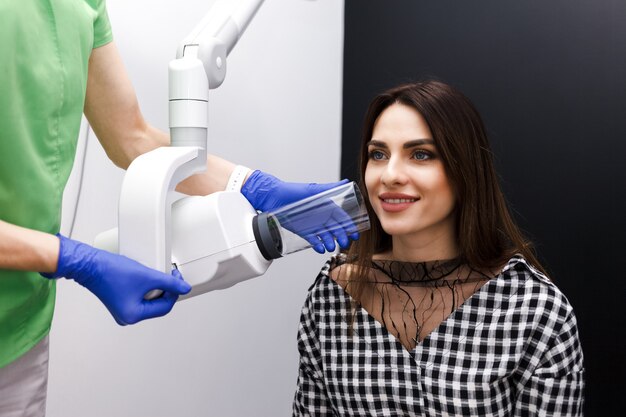A bright, white smile is often associated with health, beauty, and confidence. Teeth whitening has become one of the most sought-after cosmetic dental procedures, allowing individuals to enhance their smiles and boost their self-esteem. If you're considering teeth whitening in Birmingham, it's essential to understand what to expect and how to prepare for the treatment. This guide will walk you through the process, benefits, and tips for achieving the best results.
1. Understanding Teeth Whitening
What is Teeth Whitening?
Teeth whitening is a cosmetic dental procedure designed to lighten teeth's colour. The process involves applying bleaching agents that penetrate the enamel to remove stains and discolouration. Various methods, including in-office treatments and at-home kits, can be used.
Common Causes of Tooth Discoloration
Tooth discolouration can result from several factors, including:
- Diet: Foods and beverages like coffee, tea, red wine, and certain fruits can stain teeth.
- Tobacco Use: Smoking or chewing tobacco can lead to significant staining.
- Ageing: As we age, the enamel on our teeth becomes thinner, revealing the yellowish dentin beneath.
- Medications: Certain medications, such as tetracycline antibiotics, can cause discolouration.
2. Types of Teeth Whitening
In-Office Whitening
Dental professionals perform in-office whitening treatments and typically yield immediate results. The process generally involves:
- Assessment: Your dentist will evaluate your oral health and discuss your whitening goals.
- Preparation: Protective barriers are applied to your gums and soft tissues to prevent irritation.
- Application of Whitening Agent: A high-concentration bleaching agent is applied to your teeth, often activated by a particular light or laser.
- Follow-Up: Additional applications may be necessary, and the treatment usually takes one to two hours.
At-Home Whitening Kits
At-home whitening kits are available through dental offices or over-the-counter. These kits include:
- Custom Trays: Some dentists provide custom-fitted trays for better results, while others offer pre-filled trays.
- Whitening Gel: The gel typically contains a lower concentration of bleaching agent than in-office treatments, requiring longer application times.
- Instructions: Your dentist will provide detailed instructions on how to use the kit effectively.
3. Benefits of Teeth Whitening
Enhanced Appearance
The most apparent benefit of teeth whitening is an improved smile. Brightening your teeth can make you look more youthful and attractive, positively impacting your overall appearance.
Boosted Confidence
A whiter smile can enhance your self-esteem, making you more inclined to smile and engage with others. This newfound confidence can have a ripple effect on personal and professional interactions.
Non-Invasive Treatment
Teeth whitening is a non-invasive procedure that typically requires no drilling or anaesthesia. This makes it a low-risk option for those seeking cosmetic improvement.
4. Preparing for Teeth Whitening
Schedule a Dental Check-Up
Before undergoing any whitening treatment, it is crucial to schedule a dental check-up. Your dentist will assess your oral health, check for cavities or gum disease, and ensure that your teeth and gums are healthy enough for whitening.
Discuss Your Goals
Communicate your whitening goals with your dentist. They can guide you through the best treatment options based on your needs and expectations.
Consider Your Dental History
Be prepared to discuss your dental history, including previous whitening treatments, allergies, or sensitivities. This information will help your dentist tailor the treatment to your specific situation.
Avoid Certain Foods and Beverages
In the days before your whitening treatment, it may be beneficial to avoid foods and beverages that can stain your teeth, such as coffee, tea, red wine, and dark-coloured sauces.
5. What to Expect During and After Treatment
During the Treatment
- In-office: The procedure will last about one to two hours. You may experience mild discomfort or sensitivity, but this is usually manageable.
- At Home: Follow the instructions carefully. Treatment times may vary, but most kits require daily use for one to two weeks.
After the Treatment
- Sensitivity: It’s common to experience some tooth sensitivity following treatment. This usually subsides within a few days.
- Oral Hygiene: Maintain good oral hygiene by brushing and flossing regularly. Avoid staining foods and beverages for at least 24-48 hours after treatment.
- Follow-Up: Your dentist may recommend a follow-up appointment to assess your results and discuss any further treatments if needed.
6. Maintaining Your Whiter Smile
Good Oral Hygiene
Continuing to practice good oral hygiene is crucial for maintaining your results. Brush your teeth at least twice daily and floss daily to prevent plaque buildup and staining.
Regular Dental Cleanings
Schedule regular dental cleanings every six months. Professional cleanings can help remove surface stains and keep your smile bright.
Lifestyle Choices
Be mindful of your diet and lifestyle choices. Limiting staining foods and beverages, quitting smoking, and using a straw for drinks can help preserve your whiter smile.
Touch-Up Treatments
Consider periodic touch-up treatments, whether at home or in the office, to maintain your desired level of whiteness. Your dentist can recommend the best schedule based on your individual needs.
Conclusion
Teeth whitening in Birmingham can be an effective way to enhance your smile and boost your confidence. You can achieve optimal results by understanding the types of treatments available, preparing adequately, and knowing what to expect during and after the procedure. You can enjoy a brighter smile for years to come with proper care and maintenance. If you’re considering Birmingham teeth whitening, consult a qualified dental professional to explore your options and take the first step toward a more radiant smile.





Comments